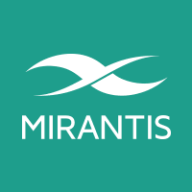

Mirantis Container Cloud and Azure Kubernetes Service compete in the container management solutions category. Mirantis Container Cloud has the upper hand due to its robust multi-cloud management and flexibility, whereas Azure Kubernetes Service excels for users already invested in the Azure ecosystem due to its deep integration and advanced security features.
Features: Mirantis Container Cloud includes robust multi-cloud management, seamless integration capabilities, and support for various Kubernetes and non-Kubernetes environments. Azure Kubernetes Service features deep integration with Azure services, advanced security features, and enterprise-grade scalability.
Room for Improvement: Mirantis Container Cloud needs improvements in documentation, ease of use for less experienced users, and better monitoring tools. Azure Kubernetes Service needs enhancements in reliability, support for hybrid deployments, and quicker resolution times for customer service.
Ease of Deployment and Customer Service: Mirantis Container Cloud offers a straightforward deployment process but faces some challenges with initial setup complexity. Its customer service is responsive but could benefit from increased expertise. Azure Kubernetes Service provides smooth integration with Azure services but has occasional deployment consistency issues. Its customer service receives mixed reviews, with some users wanting quicker resolution times.
Pricing and ROI: Mirantis Container Cloud users find setup costs reasonable but seek clearer pricing structures, with a positive ROI, especially for multi-cloud strategies. Azure Kubernetes Service users consider pricing competitive within the Azure ecosystem, offering strong ROI for companies leveraging multiple Azure services.
| Product | Market Share (%) |
|---|---|
| Azure Kubernetes Service (AKS) | 0.9% |
| Mirantis Container Cloud | 0.3% |
| Other | 98.8% |


| Company Size | Count |
|---|---|
| Small Business | 15 |
| Midsize Enterprise | 7 |
| Large Enterprise | 22 |
| Company Size | Count |
|---|---|
| Small Business | 15 |
| Midsize Enterprise | 3 |
| Large Enterprise | 17 |
Azure Kubernetes Service (AKS) is a fully managed container orchestration service provided by Microsoft Azure. It simplifies the deployment, management, and scaling of containerized applications using Kubernetes. With AKS, developers can focus on building applications while Azure takes care of the underlying infrastructure. It offers features like automatic scaling, monitoring, and security, ensuring high availability and reliability. AKS integrates seamlessly with other Azure services, enabling easy integration with existing workflows. It also provides a flexible and open-source environment, allowing developers to use their preferred tools and frameworks. With AKS, organizations can accelerate their application development and deployment processes, while reducing operational overheads.
Mirantis Container Cloud is a secure container platform for any cloud. It provides organizations with unmatched speed to ship code quicker on public clouds and on-premise infrastructure. Mirantis Container Cloud is the simplest method for building and managing Kubernetes clusters anywhere with one consistent cloud experience for developers and operators across public and private clouds. It enables full application and DevOps portability.
Mirantis Container Cloud simplifies infrastructure management by allowing you to deploy clusters anywhere on demand with one reliable connection, minimizing operational costs and increasing developer productivity. Mirantis Container Cloud is a clear solution for the world's most regulated businesses, with end-to-end security enabled by default and the highest level of FIPS 140-2 and DISA STIG compliance. Developers can quickly ship code by creating, monitoring, and managing their own Kubernetes clusters within pre-established boundaries using the self-service portal.
Mirantis Container Cloud Features
Mirantis Container Cloud has many valuable key features. Some of the most useful ones include:
Reviews from Real Users
Mirantis Container Cloud stands out among its competitors for a number of reasons. Two major ones are its deployment of images and the portability of its containers. PeerSpot users take note of the advantages of these features in their reviews:
Cristina C., Test Architect at a tech services company, writes of the solution, “The idea that you can configure an image, deploy it, and it can be reused and redeployed with the same setup over and over again is a valuable feature.
A DevOps Engineer at a tech services company, notes, “I like that Mirantis’ main products of containers are very portable. Any possible issues, problems, or troubles are fixed with improvements of the platform itself. Any constraints that Mirantis [has], have been fixed with other products or features that Mirantis provides.”
We monitor all Container Security reviews to prevent fraudulent reviews and keep review quality high. We do not post reviews by company employees or direct competitors. We validate each review for authenticity via cross-reference with LinkedIn, and personal follow-up with the reviewer when necessary.